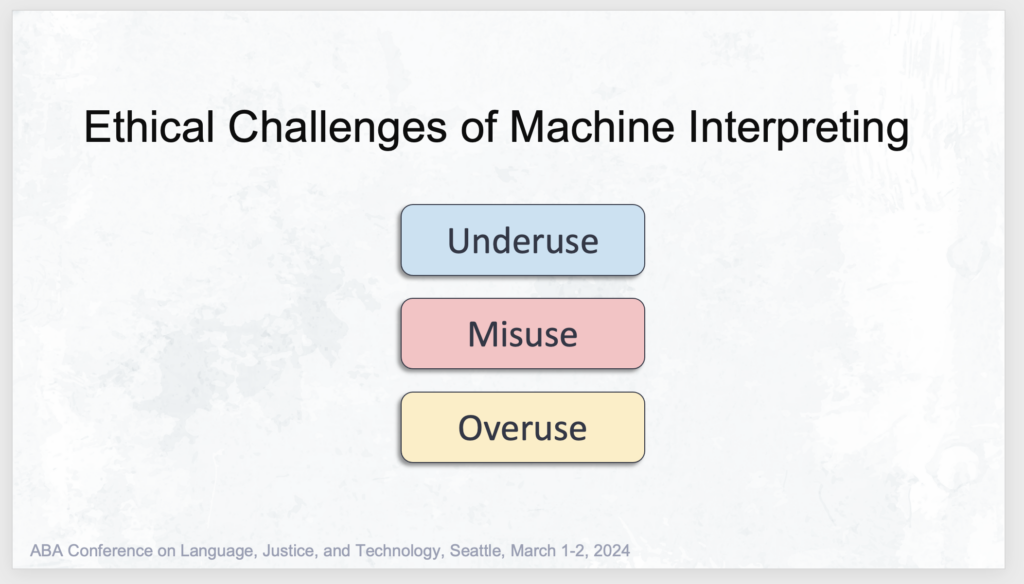Machine interpreting (MI), like any emerging technology, presents a range of ethical challenges that require careful consideration and governance. As a tool designed to enhance communication and understanding across language barriers, it has the potential to significantly and positively impact various areas of human life, contributing to easy and affordable accessibility and inclusiveness. However, its use must be managed responsibly to ensure ethical integrity. At a very general level, we can categorize the ethical challenges into three primary scenarios:

Underuse: This refers to situations where machine interpreting is not utilized despite its potential to significantly enhance communication and accessibility. Underuse is considered unethical as it denies the benefits of reduced language barriers to those who could otherwise gain from them. It is also economically imprudent, as the technology offers a cost-effective solution for increasing accessibility. The underuse of machine interpreting can stem from a lack of awareness, technological limitations, or resistance to change, and addressing these barriers is crucial for maximizing the technology’s positive impact.
Misuse: This scenario arises when the technology is employed in situations where it may cause harm. The accuracy and appropriateness of machine interpreting systems vary based on several factors, including language pairs, context of the communication, cultural nuances, technical limitations, and expectations. Using machine interpreting in sensitive or high-stakes environments, such as legal proceedings or medical consultations, without adequate safeguards can lead to misinterpretations with serious consequences. Such misuse is not only unethical but also potentially harmful and should be regulated to prevent adverse outcomes.
Overuse: This occurs when MI systems are deployed without a genuine need, leading to unnecessary resource expenditure. The economic and environmental costs are significant, considering the substantial energy and computational resources required to run these systems. Overuse not only leads to wasteful expenditure but also potentially contributes to environmental degradation due to the high energy demands of current ML technologies.
1 thought on “The ethical challenges of Machine Interpreting”